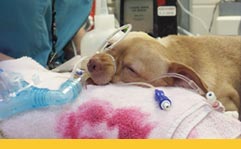How to do work experience
Sounding out future career paths has become a vital part of school holidays, but finding a good placement can be tricky. Jessica Fellowes suggests how to get the chance


Exquisite houses, the beauty of Nature, and how to get the most from your life, straight to your inbox.
You are now subscribed
Your newsletter sign-up was successful
Make use of your godparents
Any godparents who failed to remember your birthday can be now prevailed upon to help you find a week or two of work experience. This is the perfect time to use a little Catholic guilt.
Write a good letter
Ask the HR department who you should write to. Mention your schooling, awards, or voluntary work. Explain why you want to work for the company and specify available dates. Check spelling! Send your letter six months before you want the placement, and check in three months if you haven’t heard back.
Plan ahead
Call them the week before you’re due to arrive to check start times, if you’ll be reimbursed for expenses (you may need to keep receipts), and how long it takes to get there.
Do your homework
Exquisite houses, the beauty of Nature, and how to get the most from your life, straight to your inbox.
Research the company so you’re as well briefed as possible. Most businesses have websites that detail their mission statements, plus useful information such as department-head names and key clients. Dress the part
It’s very important to have the right look. If in doubt, dress up for the first day and tone it down later. Even trendy businesses such as PR will appreciate someone who looks like they’ve made an effort to be smart.
Ask questions
Your boss will want to make sure you have an interesting week, but they don’t want to waste time explaining a task only to find you’ve done it wrong because you didn’t ask them to clarify something. No one will think you’re stupid for asking quite the opposite.
Keep to the task
You might hope to shadow a lawyer at a court case in the Old Bailey or pitch for a new client. The reality is that you’ll probably be asked to make tea and alphabetise files. However, these tasks can be vital to some, so do them quickly and well and you might get moved on to bigger things.
Do lunch
Not four-hour lunches with your mates, but with fellow interns or ask someone at the company. It’s your opportunity to find out about the job and show off your personality.
Make a note
Always carry a notebook with you you might be asked to do something that slips from your mind seconds later. It’ll also make you look as if you’re taking the work seriously.
Write a good letter
After the placement, write to thank the company. If you want to work for them further, say so you might get well-paid work in your holidays that’s fantastic for your CV.
Country Life is unlike any other magazine: the only glossy weekly on the newsstand and the only magazine that has been guest-edited by His Majesty The King not once, but twice. It is a celebration of modern rural life and all its diverse joys and pleasures — that was first published in Queen Victoria's Diamond Jubilee year. Our eclectic mixture of witty and informative content — from the most up-to-date property news and commentary and a coveted glimpse inside some of the UK's best houses and gardens, to gardening, the arts and interior design, written by experts in their field — still cannot be found in print or online, anywhere else.
